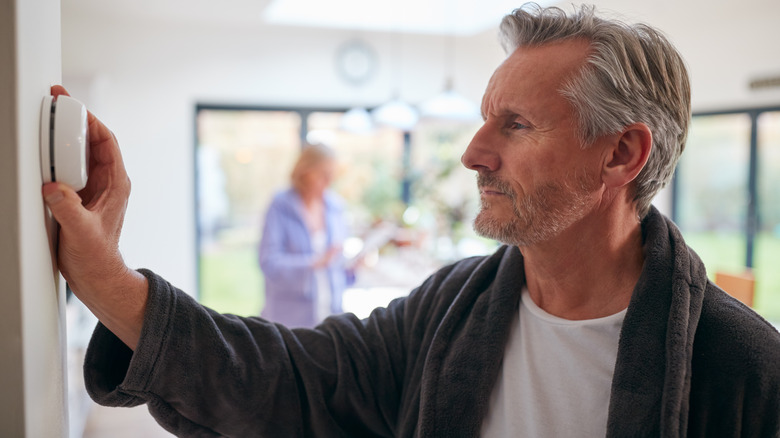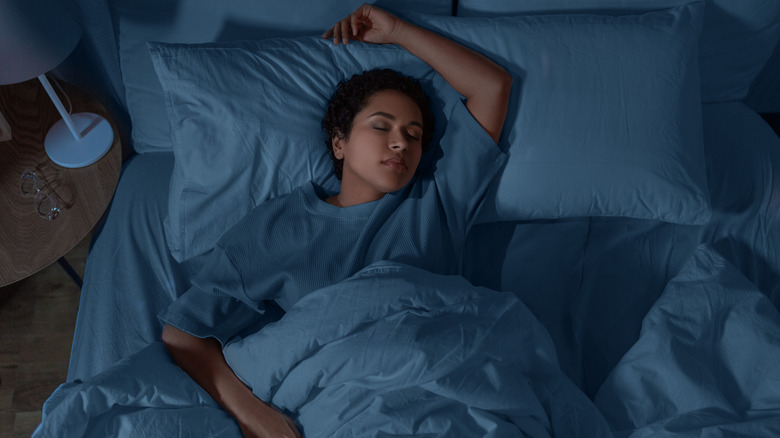What Is The Best Temperature For Sleep?
With the changing of seasons comes fluctuations in your home's temperature. Setting the thermostat to a temperature that's comfortable on a hot, humid afternoon or a frigid night may be considered more an art than a science. But you should know that there really are optimal room temperatures for getting a good night's sleep. In order to achieve the recommended seven or more hours of sleep per night, experts recommend certain bedtime routines, like avoiding screens and unwinding by reading or meditating (via Sleep Foundation). Another way to help ensure quality sleep is by keeping your bedroom temperature cool, according to the Centers for Disease Control and Prevention.
Our baseline body temperature typically is 98.6 degrees Fahrenheit, but dips by about two degrees at night (per Sleep Foundation). Keeping our bedrooms at the right temperature can boost our quality of sleep. On the other hand, a sleeping area that's too hot or cold can keep us from catching satisfying zzz's. Remarkably, a 2017 study published in Science Daily found that airflow from an air conditioner that directly faces a person while sleeping can negatively impact sleep. So, what is the magic temperature for sound sleep?
How to keep your bedroom cool and comfy
It turns out, the ideal room temperature for sleep differs according to age. "Typically it is suggested that the optimal sleeping temperature in the bedroom for adults should be between 60 and 67 degrees Fahrenheit," sleep psychologist Michelle Drerup told the Cleveland Clinic. Experts at Sleep Advisor recommend that elderly individuals set their thermostat slightly higher than average (between 66 to 70 degrees), and that babies should sleep in rooms that are between 65 and 70 degrees.
Besides setting your thermostat to the proper temperature, what else can help keep your bedroom cool and comfortable? Keeping a fan in your room is one of the best things you can do — particularly for infants (via Cleveland Clinic). According to the Sleep Foundation, overheating a baby's bedroom may increase the risk for sudden infant death syndrome (SIDS), which the Mayo Clinic defines as "the unexplained death, usually during sleep, of a seemingly healthy baby less than a year old." A 2018 study determined that using a fan to increase ventilation in a baby's bedroom can reduce the risk of SIDS (per Science Daily).
Additional suggestions for improving your quality of sleep include sleeping in breathable sheets, pajamas, and blankets, and avoiding body temperature-raising snacks containing caffeine or sugar close to bedtime (via Cleveland Clinic).


